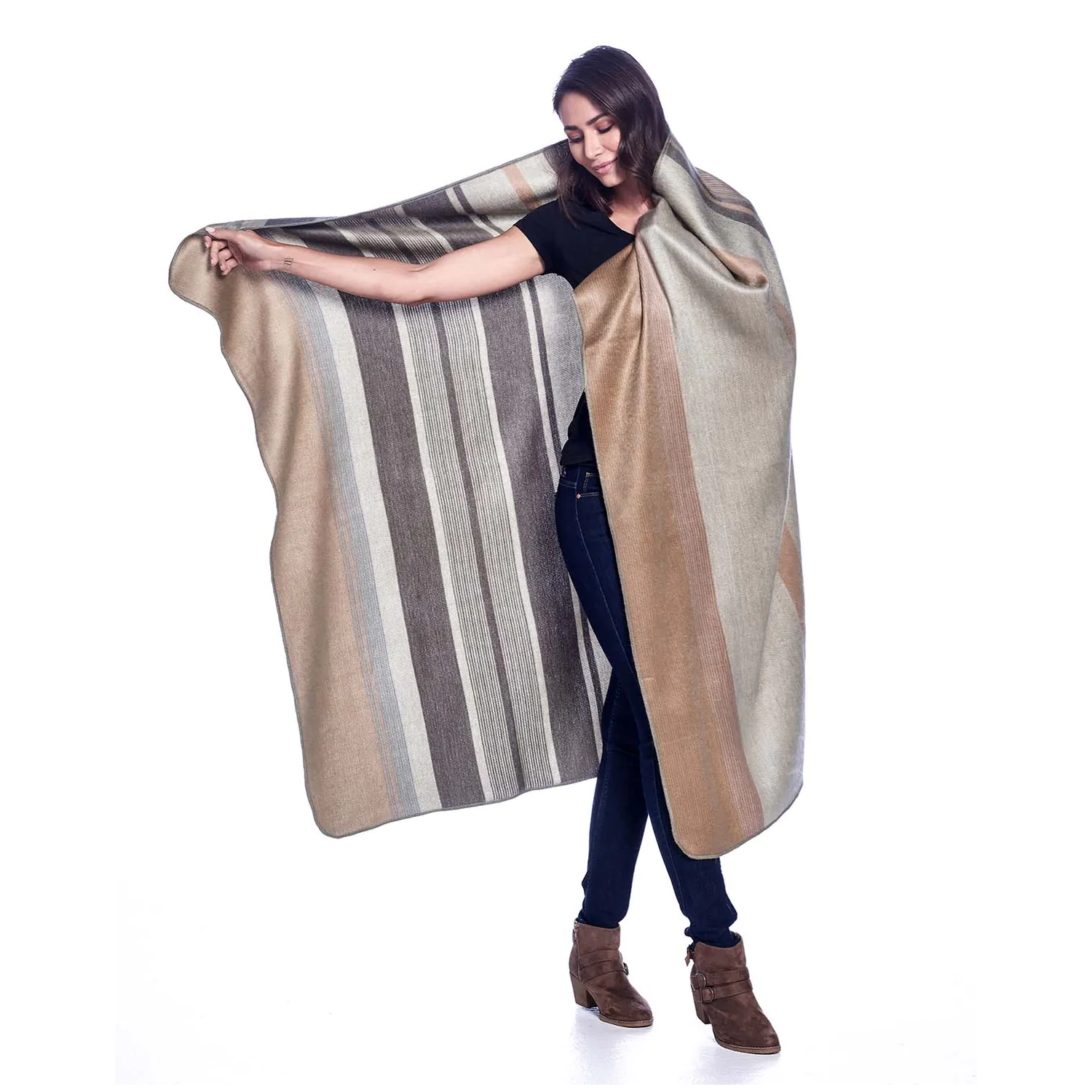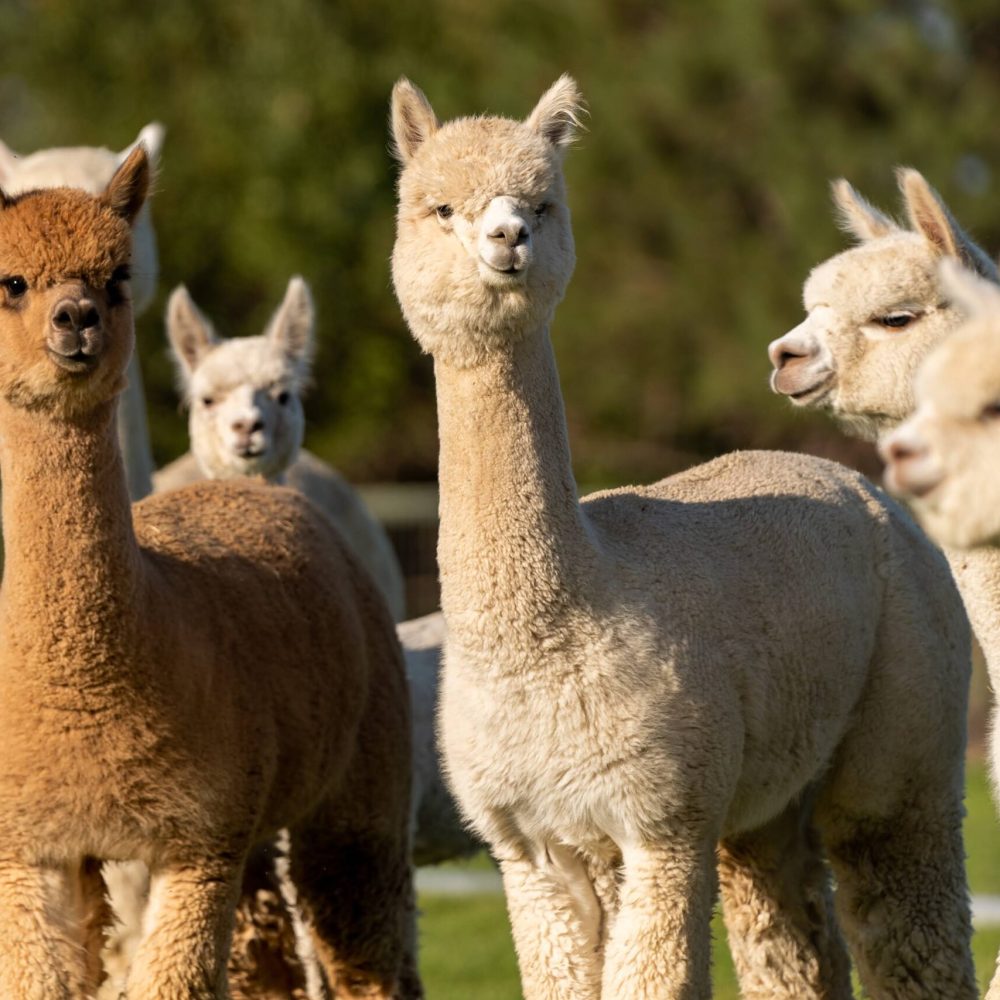
BENEFITS OF ALPACA WOOL
In recent years, alpaca wool has been growing in popularity and it’s easy to see why. Not only is it super lightweight, it’s also hypoallergenic, soft, eco-friendly, stain/odor resistant, breathable, and gorgeous!
A Lightweight Fabric
For many years, sheep’s wool has been the most common fabric used for clothing. What many people don’t know is that alpaca fiber has ⅓ the weight of lamb’s wool, yet the same amount of strength. Because of this, your clothing is just as strong, warm, and wrinkle-resistant, but it only sits with a fraction of the weight. It also has been shown to shrink less than cashmere and other similar wool products, which makes it last longer in your closet.
A Hypoallergenic Fabric
The reason alpaca fiber is naturally hypoallergenic is because it lacks lanolin – a component that can be found in sheep’s wool. For those with sensitive skin or wool allergies, alpaca fabric is a great option. The shape of the fibers also make it less itchy to wear.
A Soft Fabric
Alpaca fibers are naturally smooth, which means they are naturally wrinkle-resistant. Even those who find wool uncomfortable can most likely enjoy wearing alpaca because it feels similar to cashmere in the way that it’s soft and warm and not scratchy. Those soft fibers also give alpaca wool its natural sheen!
A Stain and Odor Resistant Fabric
Alpaca fibers naturally wick moisture from the body, which means that you’ll stay comfortable and dry no matter what. While alpaca fibers aren’t waterproof, they are water resistant and they maintain heat well – even when the’re wet.
TOUGH YET SOFT ALPACA FIBERS
Alpaca wool is very soft, but its softness depends on the quality of the yarn. The two softest forms of alpaca are baby and royal, as they have between 18-23 microns, and regular alpaca is about 24-27 microns – the fewer microns a fabric has, the softer it will be. For context, sheep’s wool has between 30-40 microns.
Alpaca is often likened to hair rather than wool but, unlike hair, alpaca fibers have scales, crimp, and elasticity. This means that it has the positive qualities of both hair and wool, making it the most desirable option of the three.
This tough fabric is also itch-free. Since alpaca fibers are known for their smaller scales, this means they are less likely to itch and cause discomfort.
These scales are also what helps alpaca fibers remain water resistant. The scales interlock and connect, which doesn’t leave much room for water to sneak through and enter the fiber. The softer the fiber, the finer its scales are and the more benefits it has.

